-
Al Qaeda to Iranian president: enough with the 9/11 conspiracy theories
Al Qaeda, in the latest edition of their online propaganda magazine Inspire, called on Iranian president Mahmoud Ahmadinejad to stop spreading conspiracy theories about the 9/11 attacks; the terrorist group called Ahmadinejad’s remarks about 9/11 “ridiculous”; last week in his address to the UN general assembly, Ahmadinejad said the “mysterious September 11 incident” had been used as a pretext to attack Afghanistan and Iraq; he added, “By using their imperialistic media network which is under the influence of colonialism, they threaten anyone who questions the Holocaust and the September 11 event with sanctions and military actions”; in response, al Qaeda wrote, “The Iranian government has professed on the tongue of its president Ahmadinejad that it does not believe that al-Qaida was behind 9/11 but rather, the US government”; “So we may ask the question: why would Iran ascribe to such a ridiculous belief that stands in the face of all logic and evidence?” the group asked
-
-
Counter piracy security expert: "The system is broken"
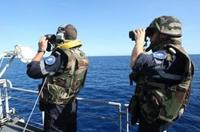
Piracy off the Horn of Africa has continued to flourish despite the concerted efforts of the world’s navies; a security expert said, “The system is broken here” and called the international counter piracy task force “one of the most expensive catch and release programs” ever; last year the task force spent more than $2 billion responding to sixty-four incidents, or roughly $30 million per incident
-
-
NYPD has means to take down a plane "in very extreme situation"
The NYPD created a counterterrorism unit following the 9/11 attacks; New York City Police Commissioner Ray Kelly said that the counterterrorism unit has the means to take down an aircraft “in a very extreme situation”
-
-
Security analyst: Oslo-type attack in U.S. likely in next few years
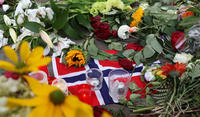
An expert on American-Muslims fears that with the rising anti-Islamic sentiments in the United States an “Oslo-type” attack could occur in the next few years at a U.S. mosque; speaking on a panel on security threats facing faith based organizations at the ASIS 2011 security conference, Nawar Shora, the CEO of Shams Training and Development, said, “I fear that in the next few years we’ll have something like Oslo repeated here in this country, whether someone will go to an Islamic center or whether someone will try a massacre during a worship on Friday”
-
-
NNSA, AFRICOM in WMD workshop in East Africa
The National Nuclear Security Administration (NNSA) and the U.S. Africa Command (AFRICOM) concluded a week-long border security workshop in Dar es Salaam, Tanzania, as part of a joint effort to enhance security at ports and borders in the region
-
-
Secure mail service will soon be available in NYC
The Millennium Group and SoBran, Inc. announced yesterday an advanced mail security service that the companies say will help keep Wall Street and New York metro area businesses safe from mail terrorism
-
-
St. Andrews University promoting its certificate in terrorism studies

The University of St. Andrews is promoting a program leading to a certificate in it terrorism studies; the program was established in 2006 in is offered on-line
-
-
NYPD remains on high-alert following 9/11
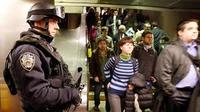
Officials in New York remain on high-alert following the warning issued by DHS that terrorists might be plotting an attack on the city for the ten-year anniversary of 9/11; NYPD have pulled back the additional security measures put in place for the ten-year anniversary like checkpoints at ports of entry and bridges, but remain on vigilant for a potential bomb attack
-
-
Combating the financing of terrorism
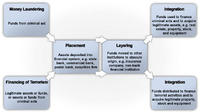
Terrorist organizations rely on financing and support networks to sustain operations and launch attacks. The U.S. Department of the Treasury has developed a sophisticated and comprehensive approach to identify, disrupt, and deter the funding networks of terrorist organizations
-
-
Parking attendants part of U.S. anti-terrorism effort

More than 7,000 parking professionals have been trained in the First Observer parking-specific program developed by the International Parking Institute with the DHS and the Transportation Security Administration
-
-
Most Americans unprepared for disaster, survey finds
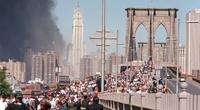
A new survey finds that most Americans are unprepared for major disasters and that they maintain a false sense of security with regard to what will happen if a major disaster or a terrorist attack took place; contrary to reality, almost one-third of respondents believed that during a major disaster, calling 911 would bring help within an hour, while 30 percent said they believed help would come within several hours
-
-
9/11 legacy: more resilient skyscrapers

Following the 9/11 attacks on the Twin Towers in New York, many predicted that the age of the skyscraper was over; there has been no slowdown in skyscraper orders, however — but the skyscrapers being built today are much stronger than the Twin Towers were; new materials, innovative designs, and attention to safety make today’s skyscraper much more resilient to man-made and natural disasters
-
-
Sector Report for Friday, 9 September 2011: Terrorism / counterterrorism
This report contains the following stories.
Plus 7 additional stories
-
-
Al Qaeda "very much alive"; U.S. needs to be "aggressive and preemptive"
Representative Peter King (R-New York), the chairman of the House Homeland Security Committee, reflects back on the 9/11 attacks, discusses critical lessons learned, and the greatest threats facing the United States over the next decade; “—we have largely learned that we need to be aggressive and preemptive when it comes to our national security. Increasingly, we do not wait for an attack before we respond, but we go after and disrupt the threat before an attack can be launched; Law enforcement at all levels must follow suit, thinking more imaginatively and “outside the box.”
-
-
We are in an "era of terror": individuals, small groups can kill on a mass scale
Graham Allison, the director of the Belfer Center for Science and International Affairs at the Harvard Kennedy School of Government, discusses nuclear terrorism in a post 9/11 world, the progress the United States has made at home and abroad in securing loose nuclear weapons and materials, the need to strengthen security measures protecting low-grade nuclear stockpiles at hospitals, and the dangerous threat that nuclear terrorism still poses
-
More headlines
The long view
What Does Netflix’s Drama “Adolescence” Tell Us About Incels and the Manosphere?
While Netflix’s psychological crime drama ‘Adolescence’ is a work of fiction, its themes offer insight into the very real and troubling rise of the incel and manosphere culture online.
